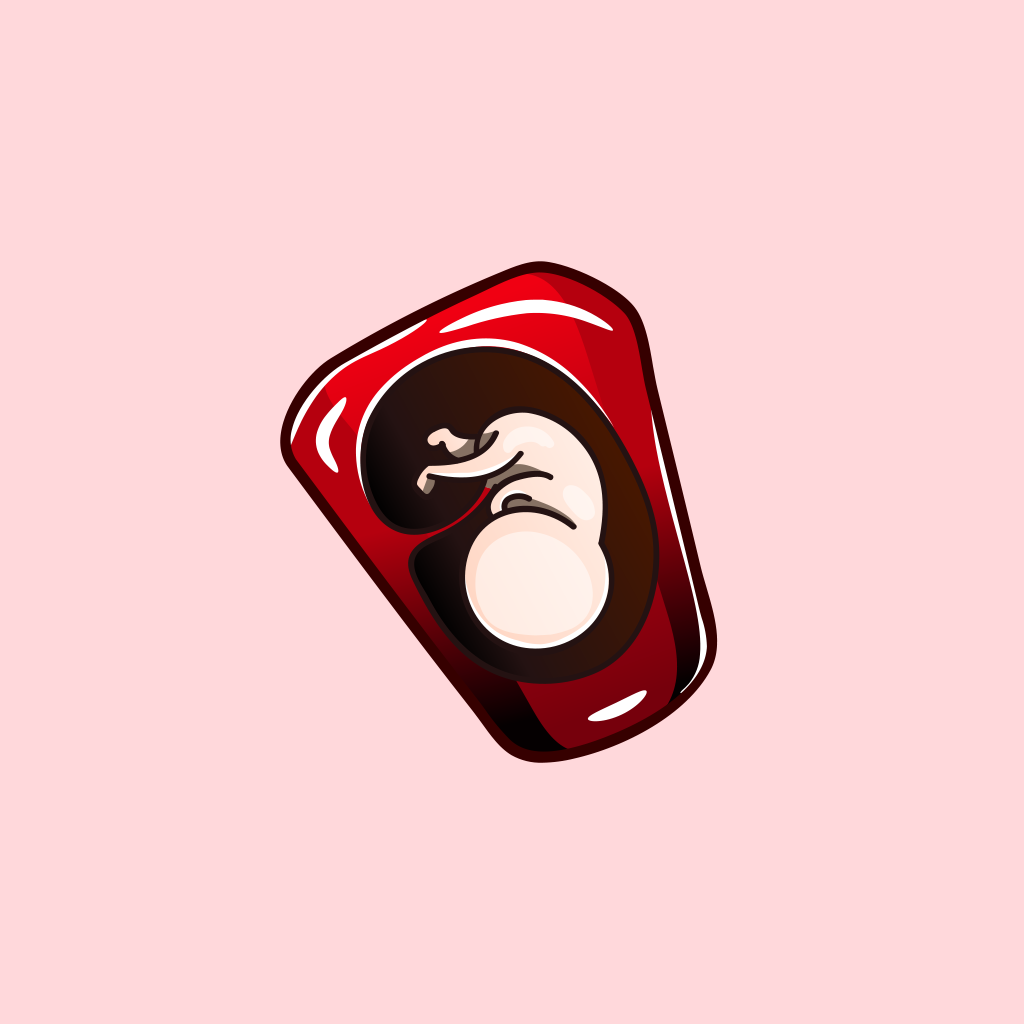Congratulations! Reaching the fifth week of pregnancy is an exciting milestone for many women. By now, you might be getting used to the idea of being pregnant, whether this is your first time or you’ve been down this road before. This week marks the beginning of an incredible journey—your baby is already growing and changing at an amazing pace.
At this stage, your baby is still very tiny—about the size of a sesame seed. Even though they are so small, a lot of important things are happening. The embryo is busy forming the foundations for your baby’s brain, spinal cord, and heart. You may not feel any different on the outside, but inside, your body is working hard to support new life.

Some women start to feel classic pregnancy symptoms now, while others might not notice much of a change. You could experience a missed period, breast tenderness, or a little more tiredness than usual. Some women find themselves more emotional as hormone levels rise. These changes are normal—even if they’re sometimes a little surprising or confusing.
This is also the time many women confirm their pregnancy with a home test if they haven’t already. Getting an early “positive” can feel thrilling and a bit overwhelming, but remember: every reaction is valid. Now is a good time to start thinking about seeing a healthcare provider. Early prenatal care is important, and your provider can answer questions, give reassurance, and help you set up a healthy pregnancy routine.
- If you haven’t already started, taking prenatal vitamins with folic acid can help support your baby’s growth and help prevent certain birth defects.
- You may also want to look at your day-to-day activities and routines, making small adjustments to support your health. Simple things like eating balanced meals, drinking plenty of water, and getting enough rest can make a big difference.
Most importantly—be patient with yourself. It’s normal to have questions and feel a mix of emotions. Every pregnancy journey is unique. Take things one day at a time, and know that this is just the beginning of a wonderful new chapter.
Your Baby’s Development This Week
At week 5 of pregnancy, a lot is happening inside your body—even if it doesn’t feel that way yet! This is an exciting stage, as your little one is making incredible progress from a tiny cluster of cells to a unique human being with a foundation for all major organs. Here’s a closer look at what’s unfolding during this special week.
The embryo is now about the size of a sesame seed—just 2 millimeters long. While this might seem very small, your baby’s body is busily putting together some of the most important building blocks for future growth and development. One major milestone this week: your baby’s heart is starting to form. Right now, it looks like a simple tube, and within the next several days, it will begin to beat for the very first time, working to circulate blood through your baby’s tiny body.
Another big development this week is the creation of the neural tube. This structure will soon grow into your baby’s brain, spinal cord, and back bones. Making sure you get enough folic acid is extra important now, as it helps the neural tube form correctly and reduces the risk of early birth defects.
Don’t be surprised to learn that traces of your baby’s unique features are already in the works. The early outlines of a little nose and tiny eye spots are beginning to take shape, although it will be many more weeks before they’re clearly visible on an ultrasound. Even at this early stage, the genetic blueprint for things like hair color and eye color is already set, thanks to chromosomes from both parents. However, these traits aren’t visible yet—they’re just quietly coded into your baby’s growing cells.
Behind the scenes, the placenta and umbilical cord are getting started, too. These structures will connect your baby to you and make sure all the oxygen and nutrients (from things like your meals and vitamins) reach your growing little one. This is why eating a healthy, balanced diet and staying hydrated are so vital. Drinking enough water helps your body create the right environment for pregnancy, and nourishing foods help support your baby’s rapid development.
As these organs and features come together, your baby is still protected inside the amniotic sac, floating in the amniotic fluid. This gentle cushion is crucial for safety and healthy growth throughout pregnancy.
- Tip: If you haven’t done so yet, start taking a prenatal vitamin with folic acid. Even if everything feels normal, these nutrients are working hard for your baby’s brain and spine right now.
- Try to eat small, balanced meals and snacks, especially if you’re starting to feel queasy. Foods like whole grains, fruit, yogurt, nut butter on toast, or mild soups can be comforting.
- Keep your first prenatal appointment in mind—even though it may not be for another few weeks, now is a great time to write down any questions you want to ask your provider.
It’s normal to wonder if everything you feel (or don’t feel) is okay. Every pregnancy is different. The most important thing right now is caring for yourself and remembering that every little step you take—like eating well, resting, and avoiding harmful substances—is helping your tiny baby develop in the best possible way. You’re doing a wonderful job already, and these early weeks are laying an amazing foundation for your baby’s future.
Changes in the Mother’s Body
At five weeks pregnant, you might just be realizing you’re expecting, or maybe you’ve been hoping for this moment for a while. Changes happening inside your body right now are exciting, but they can also bring a mix of emotions. Here’s what you might notice as your body gets to work nurturing your tiny sesame-seed-sized baby.
Hormones are the behind-the-scenes heroes of early pregnancy. Right now, your body is ramping up its production of important hormones like hCG, progesterone, and estrogen. These are vital for helping your pregnancy progress, and they play a big part in many of the changes—pleasant and not-so-pleasant—you’ll feel.
- Fatigue: You may feel more tired than usual, even after a full night’s sleep. This tiredness is completely normal and is caused by increased hormone levels, plus all the hard work your body is doing. If you can, try to rest when you need to—sometimes even a short nap or earlier bedtime can really help.
- Tender Breasts: Many women notice their breasts becoming sore, fuller, or more sensitive. Your body is getting ready to nourish your baby later on, so this tenderness is a common early sign of pregnancy.
- Nausea and Food Sensitivities: That familiar “morning sickness” might start to make an appearance, although it doesn’t always happen in the morning. Certain smells or foods might suddenly seem overwhelming, while others might become oddly appealing. You might also find yourself needing to eat more frequent, small meals to settle your stomach.
- Frequent Trips to the Bathroom: As your uterus grows—even just a little—it can put pressure on your bladder, making you feel like you need to pee more often. Don’t cut back on water; staying hydrated is especially important.
- Light Cramping or Spotting: A little mild cramping or very light spotting can occur as your body adjusts to pregnancy. For most women, these are harmless. However, if you experience anything heavy or painful, reach out to your healthcare provider just to be safe.
- Emotion Swings: With so many hormonal changes kicking in, your mood may swing from excited to weepy to anxious—all within a single day. Remember, this is completely normal and it’s okay to feel a range of emotions right now.
- Bloating and Digestive Upset: Some women find they feel more bloated, or that their usual clothes start to feel a bit snug. You might also notice mild constipation as hormonal changes slow down your digestive system.
Every woman’s experience is unique. Some notice changes right away and others feel almost the same as usual. No matter how you feel, remember your body is doing something truly incredible. If you have questions or worries, even about things that seem small, don’t hesitate to check in with your healthcare provider—they’re there to support you every step of the way. Take care of yourself, trust your body’s signals, and try to enjoy these early moments of your pregnancy journey.
Medical Checkups and Health Monitoring in Week 5
Congratulations on reaching this important early stage of pregnancy! If you’ve just found out you’re expecting—or even if you simply think you might be—this is a great time to start thinking about your prenatal care. Here’s what you need to know about medical checkups, screenings, and staying healthy for both you and your developing baby as you move through week 5.
- Initial Steps: Most providers recommend calling your healthcare provider as soon as you suspect you are pregnant. Even though your first regular prenatal visit usually happens in a few weeks (often between 8 and 10 weeks), checking in early is smart. The office can offer guidance, answer your questions, and help you schedule your first official appointment.
- What to Expect at Your First Prenatal Visit: When that first appointment comes, your provider will want to:
- Confirm your pregnancy with a blood or urine test.
- Estimate your due date based on your last period.
- Ask about your health history, medications you’re taking, and any conditions that may affect your pregnancy.
- Talk about your diet, lifestyle, and any supplements.
- Important Early Screenings:
- Your doctor may run some routine bloodwork to check your blood type, iron levels, immunity to certain infections, and screen for conditions like anemia.
- Urine testing can help spot early signs of infections or other issues.
- Looking After Your Health Between Now and Your First Appointment:
- Begin taking a daily prenatal vitamin with enough folic acid, if you haven’t already.
- Avoid things that could be harmful for your growing baby, like alcohol, tobacco, and certain medications—always ask your provider before starting or stopping anything new.
- If you develop heavy bleeding, severe pain, fever, or anything that feels “off,” call your doctor right away—these could be signs that need prompt attention.
- What You Might Not Expect: Even in week 5, it’s common to feel flooded with questions. It’s perfectly normal if you feel unsure about what’s “right” or “wrong.” Your healthcare team is there to support and reassure you, no matter your question or concern.
- Extra Tip: If you have a partner, involve them! Bringing them to appointments (if allowed), or sharing what you learn, can help you both feel more connected and prepared for the journey ahead.
This early stage is all about laying the groundwork for a healthy pregnancy. Taking small steps now—like scheduling your first checkup and building healthy habits—will make a world of difference for both you and your baby. Remember, your healthcare team wants to hear from you, so don’t hesitate to call with questions, big or small!
Nutritional Tips and Physical Exercise
Taking good care of your body now lays a strong foundation for your baby’s growth. Week 5 is an exciting time when many women are just learning they’re pregnant, so healthy routines you start now can benefit you and your baby all through pregnancy.
Smart Nutrition for Early Pregnancy
- Fill Your Plate with Color: Eating a variety of colorful fruits and vegetables means you’re getting a wide range of vitamins and minerals — think spinach, carrots, berries, and sweet potatoes. Aim for at least five servings a day.
- Choose Complex Carbs: Reach for whole grains like brown rice, oats, and whole-grain breads or crackers. They provide energy and keep your blood sugar stable.
- Build Up Your Healthy Proteins: Lean meats, beans, tofu, eggs, and dairy all help your baby’s cells grow strong. If you’re vegetarian or vegan, include plant-based proteins such as lentils and nuts.
- Don’t Forget Dairy (or Calcium-Rich Alternatives): Calcium supports your baby’s developing bones and teeth. Choose pasteurized milk, yogurt, or fortified plant milks if you’re lactose-intolerant.
- Snack Wisely: When hunger strikes between meals, try easy options like a banana with nut butter, plain Greek yogurt with berries, or whole-grain crackers with cheese.
- Iron Up: Iron needs increase in pregnancy. Include iron-rich foods such as lean red meat, spinach, beans, and iron-fortified cereals. Pair them with vitamin C foods (like oranges or tomatoes) to help your body absorb the iron better.
Practical Hydration Tips
- Keep a reusable water bottle close, especially if you’re experiencing nausea. Sipping small amounts throughout the day often feels better than drinking a lot at once.
- If plain water is hard to swallow, try adding a slice of lemon, cucumber, or a few berries for flavor.
- Staying hydrated can help reduce headaches, constipation, and even some morning sickness symptoms.
Physical Activity: Gentle Movement for Feel-Good Days
- Start Slow: If exercise wasn’t part of your routine before, gentle activities like walking, stretching, or prenatal yoga are perfect starts. Even 10–15 minutes a day makes a difference.
- Keep Moving Safely: If you already exercise regularly, you can usually keep it up with your provider’s okay—just listen to your body and avoid overheating.
- Everyday Activities Count: Light housework, gardening, or taking the stairs can keep your body active. Little bits of movement add up!
- Check In With Yourself: Fatigue is common in early pregnancy. It’s okay to rest if you’re tired—some days, a gentle stretch or walk is enough.
Small Steps for Future Wellness
- Try eating meals at regular times to keep energy and blood sugar steady.
- Carry healthy snacks when out and about. This can help curb sudden hunger and ease morning sickness.
- If certain smells or foods make you queasy, choose bland, easy-to-digest foods like toast, rice, or applesauce.
Remember, every woman’s body is different. Reach out to your healthcare provider if you have questions about what foods or exercises feel right for you. Your well-being matters — and there’s no better time to focus on self-care for both you and your growing baby.
Weekly Checklist
Congratulations on making it to week 5! Your body is working hard to nurture your growing baby, and it’s a good time to check in with yourself and your healthcare routine. Here’s a friendly, simple list to help you stay healthy and confident during this special week:
- Begin taking a daily prenatal vitamin if you haven’t already. Look for one with at least 400 micrograms of folic acid to help your baby’s brain and spine develop.
- Mark your calendar to schedule your first prenatal appointment. Even though it usually happens a bit later, it’s helpful to reach out to your doctor’s office now to get the process started and find out if you need an early visit.
- Keep a little journal of your symptoms, moods, and any questions. Noticing things like fatigue, nausea, or cravings is common—writing them down makes it easier to talk about with your provider and spot patterns.
- Check labels on your regular foods and drinks. Watch out for things like unpasteurized dairy, deli meats, and certain types of fish. Swap them for safe choices, like thoroughly cooked eggs and fish low in mercury (like salmon or tilapia).
- Listen to your body when it comes to rest and energy. If you’re feeling tired, don’t hesitate to take short naps or stretch out your bedtime—growing a baby is hard work!
- Start eating small, frequent meals if you’re experiencing queasiness. Crackers or plain toast in the morning can sometimes ease nausea. Sipping ginger or peppermint tea (in moderation) might also help.
- Review your current medicines and supplements—even over-the-counter options. Ask your provider which ones are safe during pregnancy.
- Stay well-hydrated by drinking water throughout the day. Keeping a reusable water bottle handy is a simple way to remember to sip.
- Try to avoid strong chemicals and toxins at home and work. For example, skip oil-based paint or harsh cleaning sprays and, if possible, let someone else handle kitty litter.
- Talk with your partner or loved ones about how you’re feeling. Sharing changes in your body and emotions can help you feel more supported and connected during this journey.
Remember, every pregnancy is unique. Be gentle with yourself and reach out to your healthcare provider with any questions or concerns—no worry is too small. You’re doing a great job!
When to Call Your Provider
Most early pregnancy symptoms are completely normal, but it’s always better to check in if something feels off. Your peace of mind is important, so never hesitate to reach out to your healthcare provider. Here are some signs and situations in week 5 when it’s best to give your provider’s office a call:
- Heavy bleeding: If you soak through a pad in an hour or notice bright red blood with clots, call right away.
- Severe abdominal pain: Intense cramps or sharp pain—especially if it’s just on one side of your lower belly—could signal something urgent.
- Persistent dizziness or fainting: Feeling extremely lightheaded or fainting isn’t typical and should be checked out.
- Shoulder pain: Pain at the tip of your shoulder, combined with belly pain or bleeding, can be a sign of an ectopic pregnancy.
- Passing tissue: If you notice tissue or large clots passing from your vagina, save it if you can, and let your doctor know.
- Fever over 100.4°F (38°C): A fever during early pregnancy should not be ignored, especially if you have chills or feel unwell.
- Signs of infection: Smelly or greenish vaginal discharge, burning or pain when you pee, or feeling generally sick and weak could mean an infection.
- Severe nausea and vomiting: If you can’t keep any food or liquids down for more than 24 hours, reach out so you can stay healthy and hydrated.
- Sudden swelling: Noticeable swelling in your hands, face, or feet, although rare this early, is worth reporting.
- A gut feeling that “something isn’t right”: Trust yourself—if you’re feeling unusually anxious or worried, check in with your healthcare team. No concern is too small.
Remember, every pregnancy is different and you know your body best. Your provider is there for you, whether your question is big or small. Taking action when needed helps keep both you and your growing baby as safe and healthy as possible.
Preparations for Baby
At week 5, it’s completely normal to feel a whole mix of emotions—excited, nervous, and maybe even a little overwhelmed. Remember, you don’t have to have everything figured out right now. This is the perfect time to start building a healthy and welcoming environment for both you and your little one.
- Start a Pregnancy Journal: Jot down your feelings, your hopes for your baby, or even the little changes you notice each day. This simple habit can help you process your emotions and create memories you’ll cherish later.
- Rest When You Can: Listen to your body and don’t feel guilty about needing more sleep or taking short breaks during the day. Growing a baby is a big job, and rest helps your body do its best work!
- Share Your News Selectively: If you’re comfortable, consider sharing your pregnancy with a close friend or family member. Having a support person early on can give you encouragement and someone to talk to about your feelings and questions.
- Declutter a Little: Use this early stage to tidy up a small area at home. You don’t have to do much—sorting through bathroom shelves or clearing a nightstand can help make room for new baby items in the coming months.
- Explore Relaxation Routines: Try a new calming activity, like listening to soothing music, having a warm (not hot) bath, or doing gentle stretches. Learning how to unwind will be helpful throughout pregnancy.
- Look Up Support Groups: It might be comforting to join an online or local group for expectant moms. These communities are full of useful tips, emotional support, and friendly faces going through the same milestones as you.
- Notice Your Wins: Every healthy meal, glass of water, or appointment you schedule is a small victory for you and baby. Celebrate your efforts, even the simple ones.
Most importantly, be kind to yourself. This is a time of gentle beginnings. The changes you make now, no matter how small, are meaningful steps on your path to welcoming your baby.
Citations and References
- American College of Obstetricians and Gynecologists (ACOG) – Offers guidance on early prenatal care, fetal development, recommended checkups, and nutrition in early pregnancy. Visit Source
- Mayo Clinic – Details week-by-week fetal development, typical early pregnancy symptoms, dietary guidance, and prenatal vitamin recommendations. Visit Source
- Centers for Disease Control and Prevention (CDC) – Describes early pregnancy health tips, folic acid importance, safe foods, and preventative care practices. Visit Source
- Cleveland Clinic – Explains fetal growth milestones at week 5, maternal body changes, safe foods, and when to contact a provider. Visit Source
- National Institutes of Health (NIH) – Provides information on nutrition, folic acid requirements, and lifestyle choices for early pregnancy. Visit Source
- World Health Organization (WHO) – Recommends best practices for antenatal care, maternal nutrition, and prevention of early pregnancy complications. Visit Source
- National Health Service (NHS UK) – Covers what happens at week 5 of pregnancy, early symptoms, key fetal developments, and nutritional safety. Visit Source










